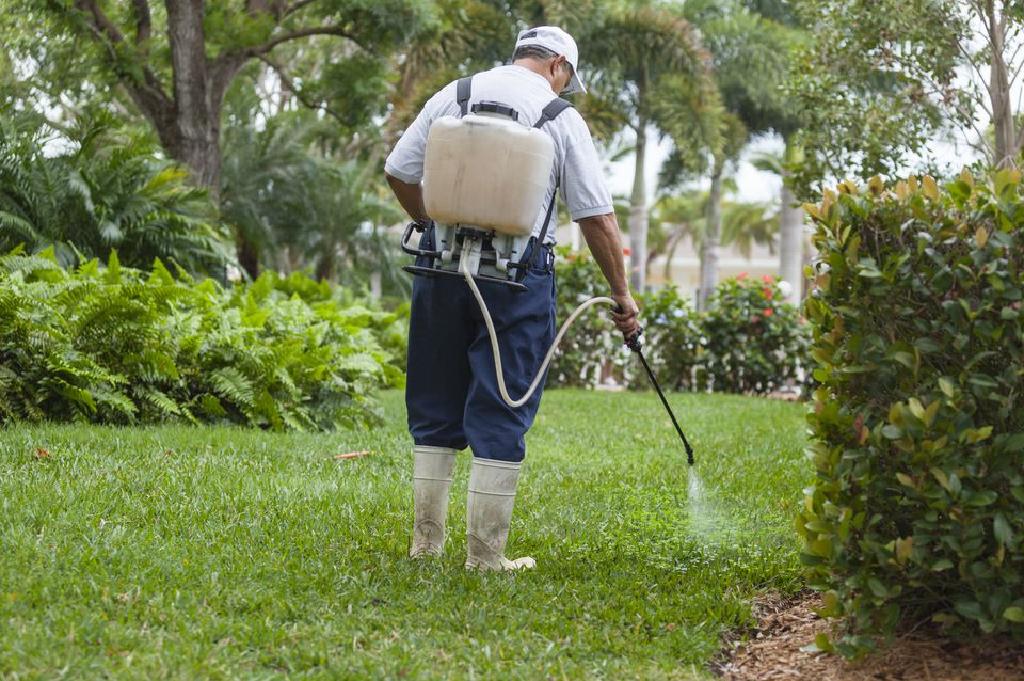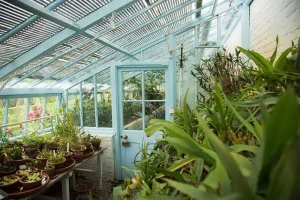Are you tired of using harsh chemicals on your beloved garden, only to find that they don’t effectively eliminate the pests?
Do you dream of a more sustainable and natural way to keep your garden healthy and thriving?
Look no further!
Off-grid garden pest control methods are not only better for the environment, but they can also be just as effective – if not more so – than chemical-based solutions.
We’ll explore some of the best off-grid garden pest control methods that really work, from natural predators to homemade repellents and everything in between.
Get ready to ditch those harsh chemicals and take your gardening game to the next level!
Use natural pest repellents
Certain plants, such as marigolds and nasturtiums, can repel pests like aphids and whiteflies. Plant these species around your garden to keep pests away.
Marigolds and nasturtiums are two such plants that have been found to be effective at repelling these pests.
Marigolds, for example, release a fragrance that repels nematodes, whiteflies, and other pests, while nasturtiums have been shown to repel aphids and other insects.
By planting these species around the perimeter of your garden, you can create a natural barrier that will deter pests from entering your garden.
This is a simple and effective way to keep your garden healthy and pest-free, without the need for harmful chemicals.
These plants are also beneficial for attracting beneficial insects like ladybugs and lacewings, which can help control pest populations further.
So, consider incorporating marigolds and nasturtiums into your garden design to keep your garden pest-free and healthy.
Implement integrated pest management (IPM)
IPM is an approach that involves using a combination of techniques to manage pests, such as monitoring for pests, using physical barriers, and introducing beneficial insects. This approach is effective and can help you avoid using toxic chemicals.
By implementing integrated pest management (IPM) in your garden, you can effectively and sustainably manage pests without relying on toxic chemicals.
IPM is an approach that combines various techniques to monitor and control pest populations, such as physical barriers, beneficial insects, and targeted treatments.
This holistic approach considers the unique needs of your garden and the specific pests you’re dealing with, and tailors its methods accordingly.
For example, you can use fine-mesh screens to keep out pests like whiteflies and aphids, or introduce beneficial insects like lady beetles and lacewings to prey on these pests.
IPM also encourages the use of natural predators and parasites to control pest populations, which can be just as effective as chemical pesticides without the harmful side effects.
With IPM, you can rest assured that your garden is in good hands and that you’re doing your part to protect the environment.
Use diatomaceous earth
Diatomaceous earth is a natural substance that is made up of the fossilized remains of tiny aquatic organisms. It works by dehydrating pests, causing them to die. Sprinkle it around your garden to control pests like slugs and snails.
Using diatomaceous earth is an effective and natural way to control pests in your garden.
This fossilized substance is made up of the remains of tiny aquatic organisms, and its sharp edges and fine texture make it an excellent dehydrating agent.
When sprinkled around your garden, diatomaceous earth will penetrate the exoskeletons of slugs and snails, causing them to dehydrate and ultimately die.
This environmentally friendly solution is safe for your pets and children, making it a great alternative to harsh chemicals.
Diatomaceous earth can be used to control other pests, such as ants and bed bugs, and can be applied both indoors and outdoors.
Simply sprinkle it around the affected areas, and you’ll be on your way to a pest-free garden in no time.
Set up a physical barrier
Use a fine mesh netting or a fine-mesh garden fabric to cover your plants and prevent pests from reaching them. This can be particularly effective for protecting young seedlings from pests like caterpillars and beetles.
Setting up a physical barrier is an effective way to protect your plants from pests.
One simple and easy-to-implement method is to use a fine mesh netting or a fine-mesh garden fabric to cover your plants.
This creates a barrier that prevents pests like caterpillars and beetles from reaching your plants, especially for young seedlings that are particularly vulnerable.
The fine mesh netting or garden fabric allows for air and water to reach your plants while keeping pests out.
This solution is not only effective but also easy to set up and maintain, making it an excellent choice for gardeners of all skill levels.
By implementing this method, you can enjoy a pest-free garden and watch your plants grow and thrive.
Companion planting
Planting certain plants together can help deter pests. For example, planting marigolds with tomatoes can help repel nematodes, while planting basil with tomatoes can help repel whiteflies.
Companion planting is an effective and natural way to combat pest infestations in your garden.
By strategically planting certain plants together, you can create a pest-resistant environment that keeps nuisances like nematodes and whiteflies at bay.
For example, planting marigolds with tomatoes is a classic companion planting combination that helps repel nematodes, which can be detrimental to tomato crops.
The strong scent of marigolds repels these pests, preventing them from feeding on your tomato plants.
Similarly, basil, when planted with tomatoes, can help repel whiteflies.
The essential oils in basil are known to repel these pests, ensuring your tomato plants stay healthy and free of infestations.
By incorporating these companion plants into your garden, you can create a more balanced and resilient ecosystem that promotes healthy growth and reduced pest pressure.
Use neem oil
Neem oil is a natural pesticide that is derived from the seeds of the neem tree. It can be used to control a wide range of pests, including caterpillars, beetles, and mites. Mix neem oil with water and spray it on your plants to control pests.
Neem oil is an effective and natural pesticide that can be used to control a wide range of pests, including caterpillars, beetles, and mites.
Derived from the seeds of the neem tree, this oil has been used for centuries in traditional agriculture to promote plant health and control pests.
To use neem oil, simply mix it with water in a spray bottle and apply it to your plants.
The solution can be sprayed on both the leaves and soil to control pests.
When sprayed on leaves, neem oil will kill pests such as caterpillars and beetles on contact.
When applied to the soil, it will control mites and other soil-dwelling pests.
This versatile and eco-friendly pesticide is safe to use on food crops and can be used as a preventative measure to keep pests away.
Neem oil can be used as a fungicide to control fungal diseases in plants.
To use neem oil as a fungicide, mix it with water and spray it on the affected areas.
Overall, neem oil is an excellent natural pesticide that can help promote healthy and pest-free plants.
Release beneficial insects
Beneficial insects, such as lady beetles and lacewings, can be released in your garden to control pests. These insects feed on pests, helping to keep them under control.
Releasing beneficial insects in your garden is a powerful and natural way to control pests without using harmful chemicals.
Lady beetles and lacewings are two of the most effective beneficial insects you can release, as they feed voraciously on pests like aphids, whiteflies, and spider mites.
By introducing these beneficial insects into your garden, you can keep pest populations under control and promote healthy plant growth.
To release these insects, simply purchase them from a reputable supplier and release them in the early morning or late evening when pests are most active.
It’s important to release enough beneficial insects to make a noticeable impact on pest populations, so be sure to follow the supplier’s recommended release rates.
Provide your beneficial insects with a safe place to live and feed, such as a beetle bank or a lacewing habitat.
With regular releases and proper care, your beneficial insects will thrive and keep your garden pest-free all season long.
Use traps
Use traps to capture and remove pests from your garden. For example, you can use sticky traps to capture aphids and other soft-bodied pests. Yellow sticky traps can be used to capture whiteflies and other flying pests.
To effectively use traps in your garden, you can deploy a variety of options to capture and remove pests.
Sticky traps, for instance, are a great solution for capturing aphids and other soft-bodied pests.
These traps feature a sticky surface that pests become stuck to, preventing them from escaping and allowing you to easily disposing of them.
Yellow sticky traps can be used to capture whiteflies and other flying pests, which can be particularly challenging to control.
By positioning these traps strategically throughout your garden, you can significantly reduce the population of these pests, ultimately improving the health and appearance of your plants.
Remember to regularly check and replace the traps to ensure maximum effectiveness.
Want More? Dive Deeper Here!
Hey there! If you’re the type who loves going down the rabbit hole of information (like we do), you’re in the right spot. We’ve pulled together some cool reads and resources that dive a bit deeper into the stuff we chat about on our site. Whether you’re just killing time or super into the topic, these picks might just be what you’re looking for. Happy reading!
- PI274/PI274: Pesticide Injection and Drenching
- Pest Management for Herb Bedding Plants Grown in the Greenhouse | Integrated Pest Management
- Asian Citrus Psyllid / Citrus / Agriculture: Pest Management Guidelines / UC Statewide IPM Program (UC IPM)
- Dealing with Nuisance Wildlife, Growing Garlic, Inkberry & Tree Guards | Extension






